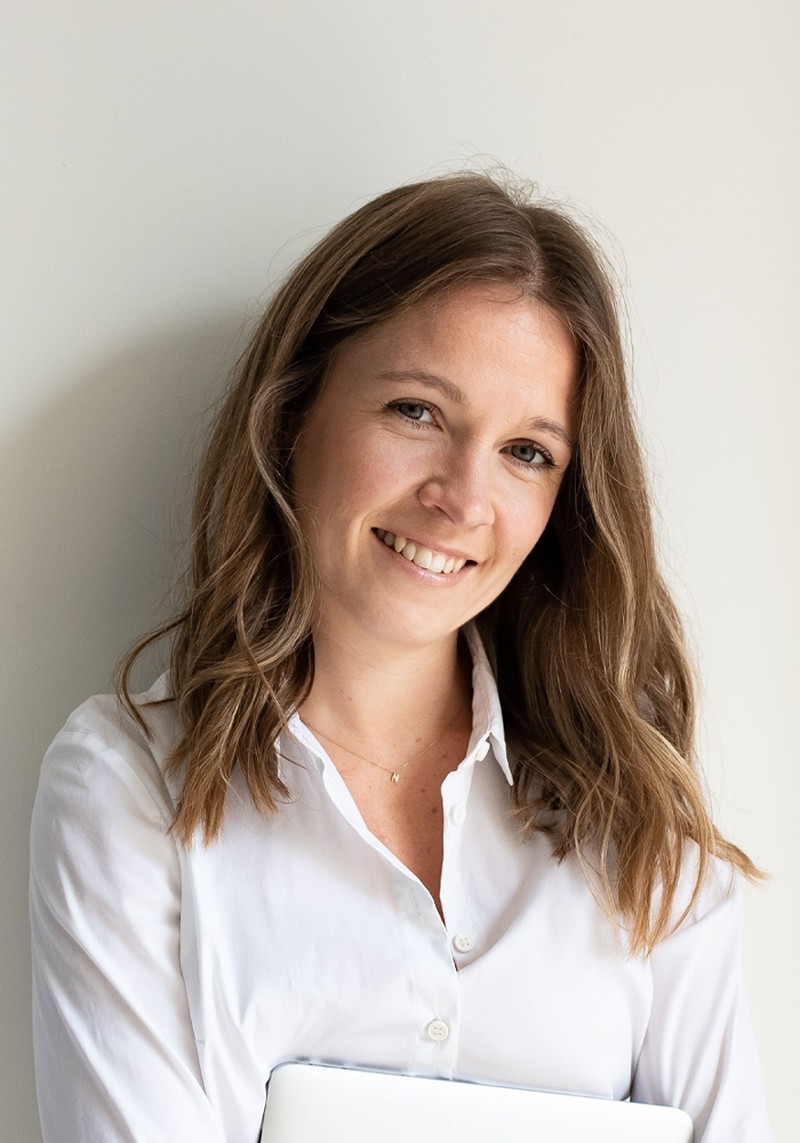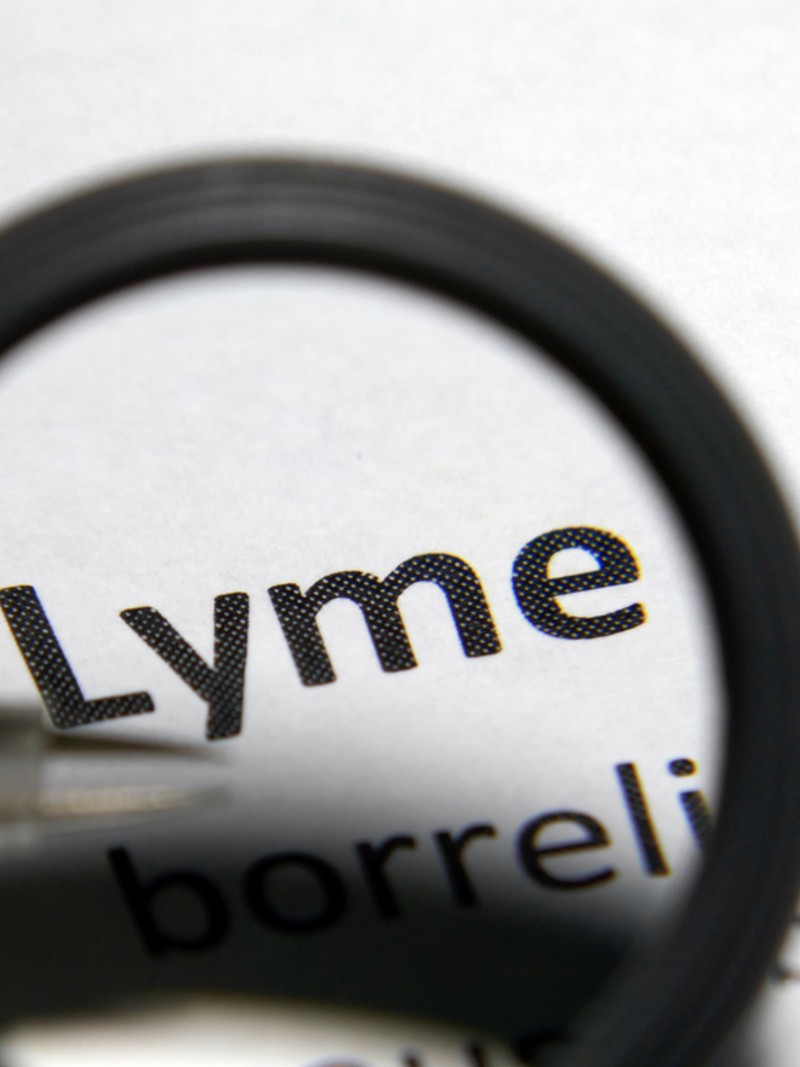A Nutritionist Shares Her Experience With Lyme Disease
It all started when I was 13. I was a normal teenager – I enjoyed school, I swam, I was musical and had a loving, supporting family. But very suddenly I became poorly – exhaustion isn’t a strong enough word. I was struggling with full-body aches and fatigue, awful IBS and bloating, was noise and light sensitive; my dad would even have to carry me down the stairs. My brain fog was severe, I struggled to eat and I couldn’t hold my own head up. I was either in bed or on the sofa for most of the day.
Initially I was diagnosed with chronic fatigue syndrome. After being passed to every consultant and paediatrician, nobody could find anything wrong with me. I was hospitalised and sent for psychological evaluation, but every test came back clear. Shortly afterwards, I was diagnosed with ME/chronic fatigue syndrome, which I now know is common. I was told it was a severe case and there was nothing anyone could do. At the age of 13, it looked like I was either bedbound or in a wheelchair, unable to walk.
My health continued to spiral downward. But I refused to take no for an answer. It all hit rock bottom when I was 18, which was when I started to investigate functional medicine and a holistic approach to healing. I’d spent years researching my symptoms and had a small voice inside my head telling me it could be Lyme disease.
Functional testing revealed everything. I had been tested for Lyme disease on the NHS several times, but they all came back negative. I had a gut feeling we were missing a piece of the puzzle, so I tested via Armin Labs Academy of Nutritional Medicine in Germany – the most respected Lyme disease testing centre in the world – and it came back positive with co-infections. I had been bitten by a tick when I was eight years old, but until then had never made the connection. I also had stool tests, adrenal tests and thyroid panels, all of which showed dysfunction due to the Lyme disease. The standard ‘treatment’ for Lyme disease is years of antibiotics, which doesn’t come with any promise of healing, not to mention the negative effect it has on your gut health. By this point, I was confident a whole-body approach was the only way forward.
You can’t cure Lyme disease, but you can put it in remission. For some context, Lyme disease is caused by bacteria in the blood, most commonly transmitted via a tick bite, but it can also be from a mosquito or flea, and cases are rising. As it affects the blood, it has the potential to move quickly through the body, affecting your gut, nervous system and brain. Finding and rectifying the dysfunction in my body was key, as Lyme thrives in a person who is compromised. I had ongoing gut and thyroid issues, mould illness, adrenal fatigue, a high viral load and I was pushing my body too much. Recovery isn’t a case of taking a pill and your problems disappear overnight – it calls for a well-rounded approach that has a resilient immune system at its core.
I started by overhauling my diet. I used to drink energy drinks and eat lots of white bread but getting rid of processed and packaged foods was key. I thrive when I eat a high-fat, high-protein diet. Avocado, coconut oil, butter, olive oil, fish chia seeds, beef, nuts and seeds and hummus are all staples. I notice a huge difference in my energy, skin, hormones and mood when I deviate from this. I eat from nature and think our grandparents were on to something – they ate meat and two veg, drank bone broth and put butter on their peas. This is how we should all be eating.
I try to avoid gluten. It causes me to bloat, makes my skin flare up, and makes me tired and constipated. It’s surprisingly easy to cut out gluten: I swapped toast and jam for a chia pudding with almond milk, and coconut yoghurt with almond butter and banana; and for lunch, instead of a sandwich, I’ll have a salmon salad with avocado, hummus and olive oil. Eat naturally gluten-free foods, not foods from the gluten-free aisle in the supermarket.
Supplements keep me on track. The key with supplements is tailoring them to your needs and using high-quality formulas. When you’re using the right supplements, it’s an investment in your health. I want to feel optimally ‘well’ not ‘average’, therefore I prioritise supporting my liver to detox; gut health to support digestion and ensure absorption of nutrients; and brain health to calm my nervous system. I take a high-quality multivitamin, chlorella and glutathione for the liver, a potent probiotic, magnesium, vitamin B6 and collagen for my skin. Collagen is wonderful to support the skin and is also fantastic for gut health to keep your gut lining strong.
Alternative therapies are worth a try. I’ve tried pretty much everything and some treatments have been more beneficial than others. Infrared saunas and coffee enemas were brilliant in helping me detox, while twice-daily tongue scraping and dry brushing are still daily rituals. I also did lymphatic massage for years to aid detoxification. Brain retraining is a new technique that’s also been game changing. Some of the beliefs running through my brain were no longer helpful – thoughts like ‘you will relapse’, ‘you can’t live a full life’ or ‘your body will always be broken’ – and brain training helps to reprogramme. It also calms the nervous system, especially if you have experienced a form of trauma, in which case your brain will want to keep you safe and small.

A lot of healing is emotional. You have to learn to rest and surrender to the process and I’ve had lots of therapy to get me where I am today. One of my biggest ongoing health struggles is stress. Stress is the biggest reason I see people relapsing or ending up with chronic illness in the first place. There’s no denying the pressure stress puts on the immune system. Self-care is a priority – I’m proud of myself and all my body has been through. I used to be a severe insomniac but having worked on my sleep, I now have regular Epsom salt baths, practise meditation and go to bed at 9.30pm. I pace my life and avoid overscheduling, and stick to gentle forms of exercise, like yoga, Pilates and dog walks.
Lyme disease can affect fertility. When I was very poorly, I had awful periods that were painful and irregular. They’d make me even more fatigued and would cause me to relapse time and again. A lot of the healing work I did was focused on hormonal health and supporting my gut and liver, both of which play a crucial role in supporting optimal hormonal production and better periods. The chances of being able to get pregnant and have a viable pregnancy with a history of Lyme disease is slim. However, I ended up conceiving when I wasn’t trying and my son was born at a very healthy 9lbs 5oz. I was concerned I may pass the infection onto him, but so far, so good.
Remember there isn’t one way to look at your health. You are your own advocate and no one is going to fight for you like yourself. Do research, implement change and try new things. Don’t be afraid to think outside the box. The body is amazing, and my belief is that it can heal when it’s given the right help and support.
For more information or to book an appointment with Rebecca, visit HelloHealing.co.uk.
DISCLAIMER: Features published by SheerLuxe are not intended to treat, diagnose, cure or prevent any disease. Always seek the advice of your GP or another qualified healthcare provider for any questions you have regarding a medical condition, and before undertaking any diet, exercise or other health-related programme.
DISCLAIMER: We endeavour to always credit the correct original source of every image we use. If you think a credit may be incorrect, please contact us at info@sheerluxe.com.


